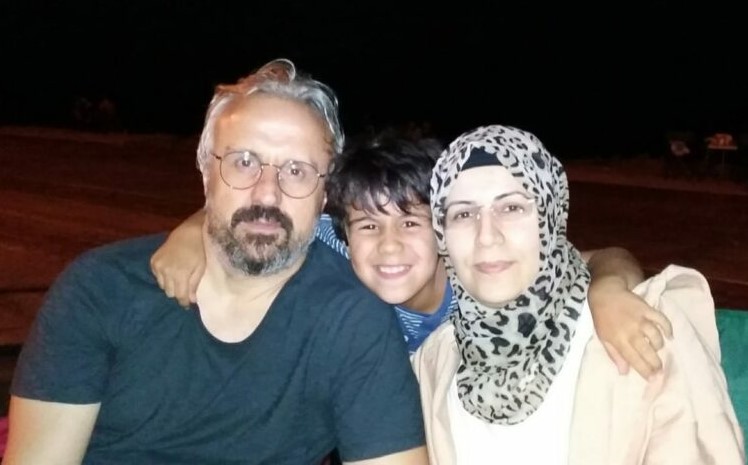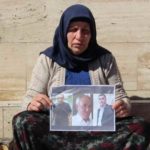A doctor was suspended for a week for providing health information about an inmate suffering from COVID-19 to his family, a petition sent to the Turkish Parliament’s Human Rights Committee by the inmate’s wife after her husband died revealed.
In his defense the doctor reportedly said he did not know that the patient, Önder Ateş, had been convicted of Gülen links but had he known he would not have given the information out. In her petition Nurten Ateş said her husband was a victim of gross negligence and human rights violations, Bold Medya reported.
Nurten Ateş said both the prosecutor’s office and the hospital were complicit in the violation of her husband’s rights and had “tormented the whole family” during his 20-day hospitalization. “Both institutions failed to carry out their duties and robbed my husband of his rights as a patient,” she said.
Ateş was one of 22 inmates who contracted the virus in Samsun Prison. He was hospitalized on February 11 when his condition became serious, and five days later he was put in intensive care when it worsened. He died on March 3.
Ateş was an English teacher before he was summarily dismissed by an executive decree. He was sentenced to nine years in prison on September 30, 2020 for links to the Gülen movement.
Turkish President Recep Tayyip Erdoğan has been targeting followers of the Gülen movement, a faith-based group inspired by Turkish cleric Fethullah Gülen, since the corruption investigations of December 17-25, 2013, which implicated then-Prime Minister Erdoğan, his family members, and his inner circle.
Dismissing the investigations as a Gülenist coup and conspiracy against his government, Erdoğan designated the movement as a terrorist organization and began to target its members. He intensified the crackdown on the movement following the abortive putsch on July 15, 2016 that he accused Gülen of masterminding. Gülen and the movement strongly deny involvement in the coup attempt or any terrorist activity.
According to Nurten Ateş her husband was made to stay in one of the hospital’s basement rooms that were designated for sick inmates. She said this contributed to the worsening of his condition because it was a damp, dark and windowless room.
“My husband, who was suffering from severe respiratory illness, was taken to a small room without fresh air,” she said. “Even a doctor later admitted that the room was not appropriate for a patient, let alone a COVID-19 patient.”
In addition to being kept in unsuitable conditions, Ateş was not allowed to contact his family over the phone. Nurten Ateş said they appealed to the prosecutor several times to be granted permission to speak on the phone; however, the request was denied. “They told us the hospital did not have the necessary equipment,” she said. “After my husband’s death the prosecutor told us he had no idea we were not allowed to speak.”
Nurten Ateş said they were not updated about her husband’s condition and that every time they called they were told by hospital authorities that information on an inmate’s condition was “classified.” Only after Ateş was intubated and had lost consciousness was his wife allowed to see him.
Ateş’s family had requested his parole so he could receive better treatment with regular patients. His family was notified of his parole 10 minutes after he passed away.
Nurten Ateş said the suspension of the doctor who updated her about her husband’s condition was a turning point, after which the hospital staff completely cut off communication with them.
The Turkish parliament passed an early parole law on April 14 aimed at reducing the inmate population of the country’s overcrowded prisons due to the coronavirus pandemic. Yet, the legislation excluded political prisoners, including opposition politicians, journalists, lawyers, academics and human rights defenders convicted under the country’s controversial counterterrorism laws. The law prompted calls from the UN, the EU and rights groups for the non-discriminatory reduction of prison populations.
According to a statement from Interior Minister Süleyman Soylu on February 20, a total of 622,646 people have been the subject of investigation and 301,932 have been detained, while 96,000 others have been jailed due to alleged links to the Gülen movement since the failed coup. The minister said there are currently 25,467 people in Turkey’s prisons who were jailed on alleged links to the Gülen movement.
Source: Stockholm Center for Freedom (SCF)



